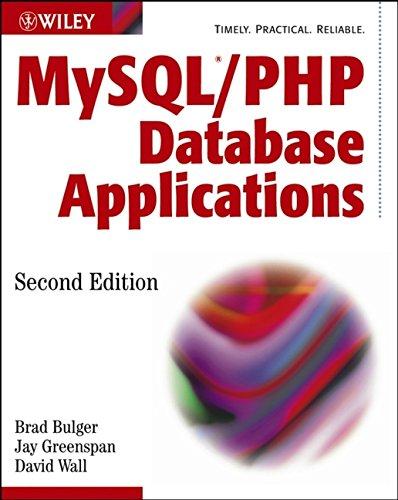Question
Using the following Java code as an example, PLEASE FIX the Term Frequency program to properly output the top 25 words with stop words removed.
Using the following Java code as an example, PLEASE FIX the Term Frequency program to properly output the top 25 words with stop words removed. Right now the output is NOT parsing correctly and shows the following incorrect frequency counts:
mr - 785 elizabeth - 635 very - 486 darcy - 417 such - 392 mrs - 343 much - 327 more - 324 bennet - 323 bingley - 306 jane - 295 miss - 283 one - 270 know - 237 before - 229 herself - 227 though - 226 well - 224 never - 218 sister - 218 soon - 216 think - 211 now - 204 time - 203 good - 200
With Java stream API to create a code golf simple fewest lines of code version. As you can see by comparing the above output with the output expected below there is STILL issues with parsing the stop words correctly as it missing a few occurances of some of the words as you can see in comparison to the proper output (e.g, mr should be 786 not 785 and much should be 329 not 327 times) Make sure to test before posting solution!
Constraints:
1. Data comes to functions in streams, rather than as a complete whole all at at once
2. Functions are filters / transformers from one kind of data stream to another
3. Program must run on command line and take an input file of text called pride-and-prejudice.txt and must output only the TOP 25 most frequent words with their counts and MUST be in order of most frequent at the top and MUST output to a new text file called output.txt NOT the command line. It must FILTER out the STOP WORDS from the list below and take the stop_words.txt file as input (not a string of words hardcoded).
stop_words.txt:
| a,able,about,across,after,all,almost,also,am,among,an,and,any,are,as,at,be,because,been,but,by,can,cannot,could,dear,did,do,does,either,else,ever,every,for,from,get,got,had,has,have,he,her,hers,him,his,how,however,i,if,in,into,is,it,its,just,least,let,like,likely,may,me,might,most,must,my,neither,no,nor,not,of,off,often,on,only,or,other,our,own,rather,said,say,says,she,should,since,so,some,than,that,the,their,them,then,there,these,they,this,tis,to,too,twas,us,wants,was,we,were,what,when,where,which,while,who,whom,why,will,with,would,yet,you,your |
Correct output will look like this if written correctly so ENSURE THE STOP WORDS ARE PROPERLY REMOVED TO PROVIDE THE FOLLOWING OUTPUT BEFORE POSTING SOLUTION OR IT WILL BE DOWNVOTED!:
output.txt:
mr - 786
elizabeth - 635
very - 488
darcy - 418
such - 395
mrs - 343
much - 329
more - 327
bennet - 323
bingley - 306
jane - 295
miss - 283
one - 275
know - 239
before - 229
herself - 227
though - 226
well - 224
never - 220
sister - 218
soon - 216
think - 211
now - 209
time - 203
good - 201
**CURRENT JAVA CODE BELOW**:
import java.io.IOException; import java.nio.file.Files; import java.nio.file.Paths; import java.util.Arrays; import java.util.Comparator; import java.util.HashSet; import java.util.LinkedHashMap; import java.util.Map; import java.util.Set; import java.util.function.Function; import java.util.stream.Collectors; import java.util.stream.Stream;
public class Streams {
public static void main(String[] args) throws IOException { String inputFilePath = "pride-and-prejudice.txt"; String stopWordsFilePath = "stop_words.txt"; String outputFilePath = "output.txt"; int topN = 25;
// Load stop words into set Set
// Read words from file and filter out stop words Map
// Sort words by frequency and output top N words to file Files.write(Paths.get(outputFilePath), wordFreqs.entrySet().stream() .sorted(Map.Entry.comparingByValue(Comparator.reverseOrder())) .limit(topN) .collect(Collectors.toMap(Map.Entry::getKey, Map.Entry::getValue, (v1, v2) -> v1, LinkedHashMap::new)) .entrySet().stream() .map(entry -> entry.getKey() + " - " + entry.getValue()) .collect(Collectors.toList())); } }
**THIS IS MY 10th ATTEMPT AT GETTING A WORKING SOLUTION FOR THIS QUESTION, SO MAKE SURE THE PROGRAM WILL FULLY WORK WITHOUT ADJUSTMENTS BEFORE SUBMITTING SOLUTION OR I WILL DOWNVOTE YOUR ANSWER.**
*** BE EXTRA CAREFUL WITH CODE FOR PARSING THE WORDS AND STOP WORDS TO ENSURE THE CORRECT OUTPUT FREQUENCY IS OBTAINED AS ABOVE***
Step by Step Solution
There are 3 Steps involved in it
Step: 1

Get Instant Access to Expert-Tailored Solutions
See step-by-step solutions with expert insights and AI powered tools for academic success
Step: 2

Step: 3

Ace Your Homework with AI
Get the answers you need in no time with our AI-driven, step-by-step assistance
Get Started


